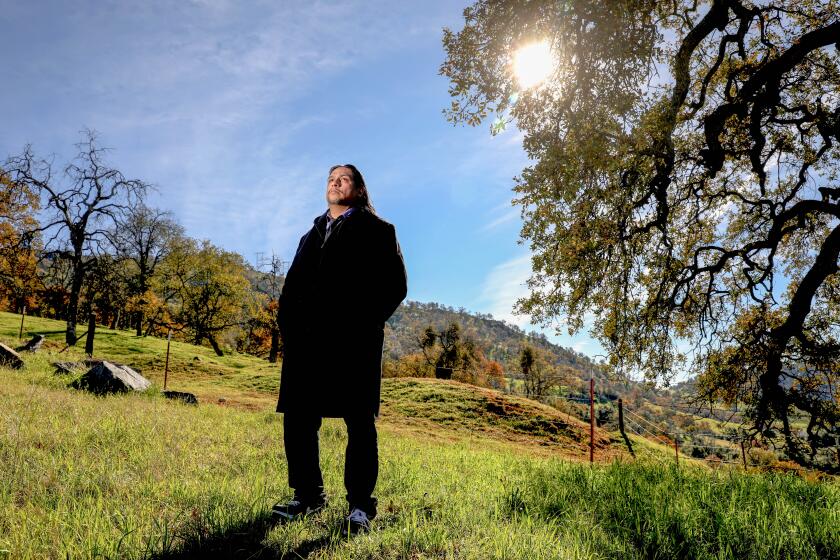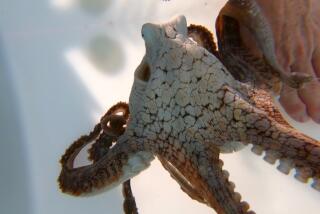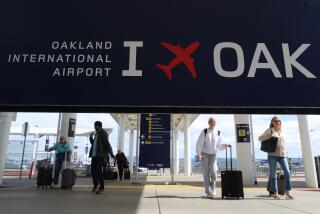New law will remove the word ‘squaw’ from California place names

In a ceremony joined by Native American tribal leaders, Gov. Gavin Newsom on Friday signed a bill that will remove the word “squaw” from nearly 100 geographic features and place names across California.
In at least one place with the offending name — the unincorporated town of Squaw Valley near Kings Canyon National Park — some residents are upset by the new law. Discussions about what the name should be have already grown heated.
The Dunlap Band of Mono Indians, whose ancestral home includes the area, welcomed the bill signing as a historic victory.
“AB 2022 has been signed into law! California will ban the use of the racist and sexist slur sq*** from official place names,” they wrote on Facebook.
But Fresno County Supervisor Nathan Magsig, who represents the area, said in an interview Saturday: “I’m disturbed by what has happened. The state just charged ahead without giving folks an opportunity to weigh in on whether they want the name of their community changed.
“The impetus for this bill was that many Native Americans find this term to be demeaning,” he said. “But it depends on the context. For some people, it’s a source of pride.”
In Fresno County, Squaw Lake and Squaw Leap — a cliff overlooking the San Joaquin Gorge where legend has it that 17 Native American women who had been chained together by soldiers leaped to their deaths — are among the five places that will also need new names.
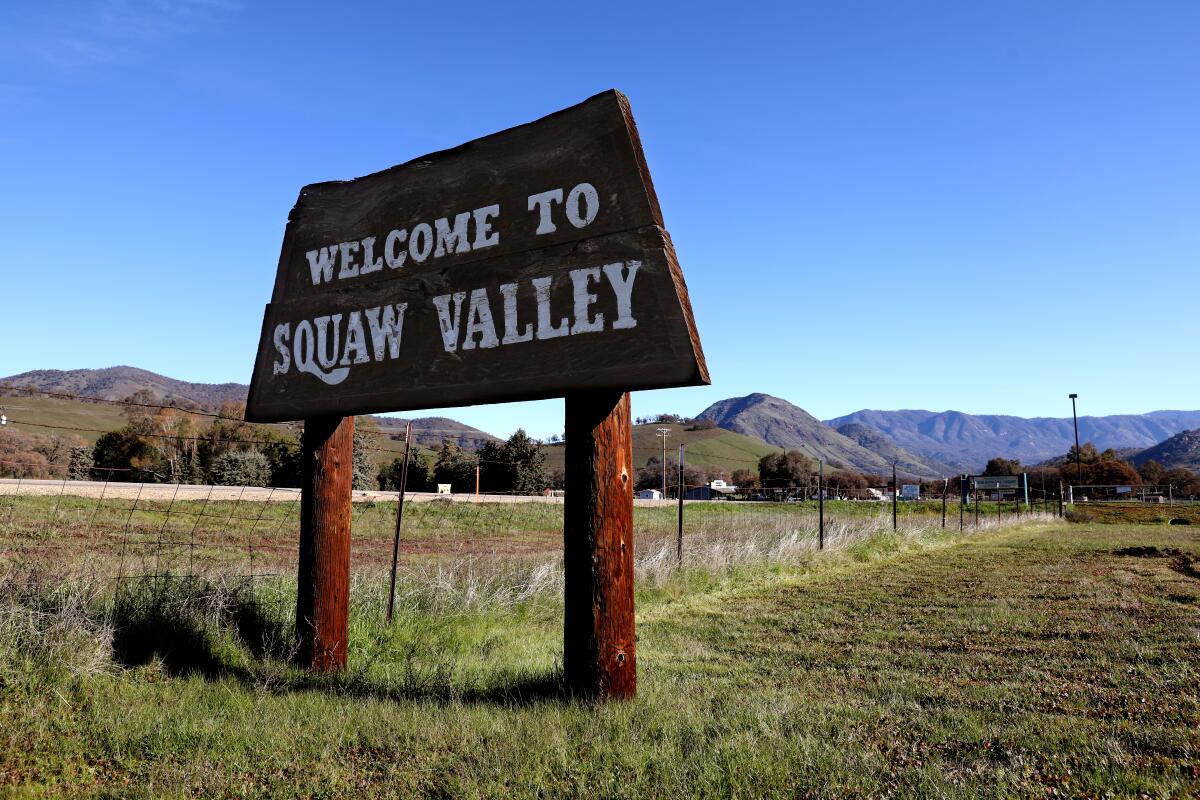
Statewide, officials have three years to remove the slur from towns, meadows, bodies of water, peaks and valleys.
AB 2022 by Assemblyman James C. Ramos (D-Highland) was among several bills Newsom signed to support Native American communities and promote equity and accountability throughout the state.
The move followed federal action this month to complete the removal of the word “squaw” from 650 geographic features across the country. In November, Interior Secretary Deb Haaland, who is Native American, declared the term “squaw” to be derogatory and established a task force to find replacement names for places on public land.
“The term has historically been used as an offensive ethnic, racial and sexist slur,” the Department of the Interior said in a news release, “particularly for Indigenous women.”
The new law could not have come soon enough for Native American activists whose ancestors lived in the hill country on the western flanks of the Sierra Nevada range for millennia.
They include Roman Rain Tree, a member of the Dunlap Band of Mono Indians and leader of the coalition Rename S-Valley Fresno County, who led virtual town halls and gathered more than 35,000 signatures favoring a new name for Squaw Valley.
“I feel great,” Rain Tree said in an interview Saturday. “Now, we’re free to hang out a new welcome sign in this area, one with a name that no longer offends Indigenous people everywhere by referring to our mothers and sisters with a pejorative.”
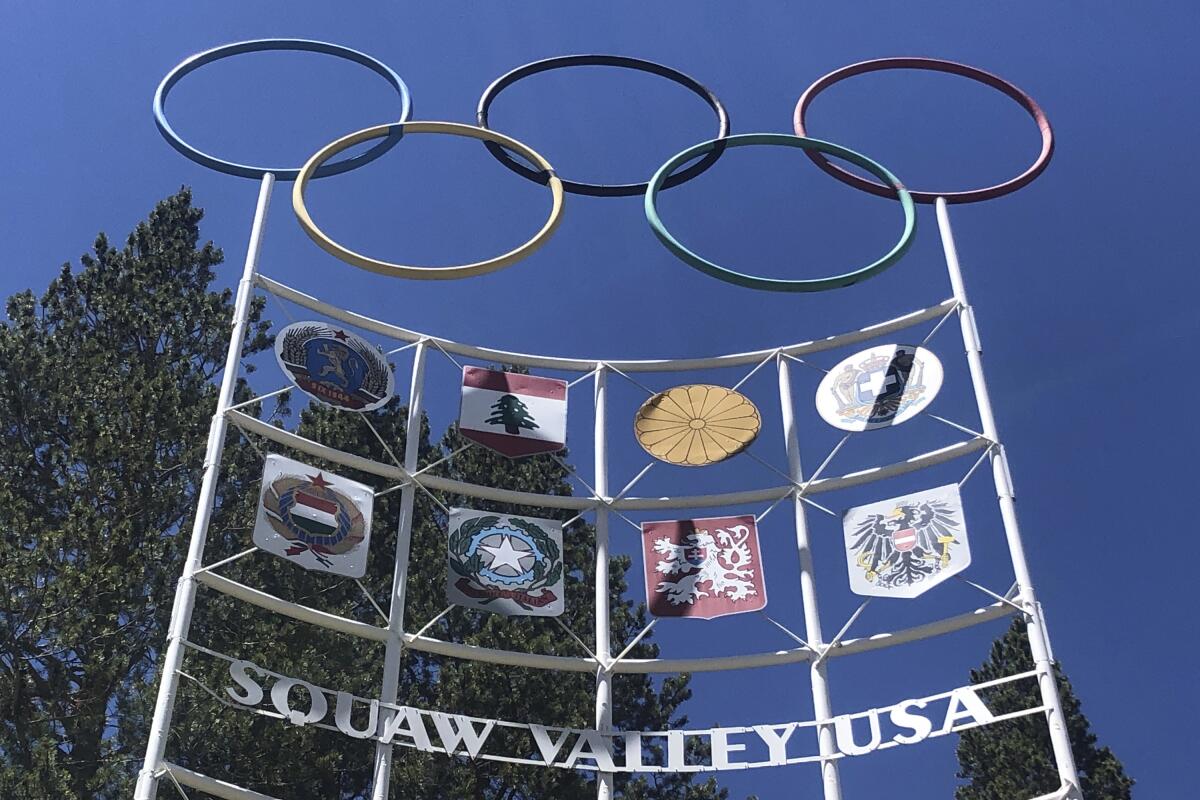
The town of 3,600 residents is a 300-mile drive from the historic ski resort near Lake Tahoe that hosted the 1960 Winter Olympics and was once known as Squaw Valley. The ski resort’s name was changed a year ago to Palisades Tahoe.
Fresno County Supervisor Nathan Magsig, who moved to the area from Orange County as a teenager, accuses Roman Rain Tree of being an ‘outsider.’
This month, Magsig, 45, who moved to Fresno from Orange County as a teenager, said he “sent 1,400 mailers to local households asking if they want a name change.”
For the record:
4:33 p.m. Sept. 26, 2022An earlier version of this article said Fresno County Supervisor Nathan Magsig moved to Squaw Valley as a teenager. He moved to Fresno as a teenager.
“The local community was left out of the process,” he said. “I plan to present the results to the Board of Supervisors on Oct. 11. After that, we’ll decide how to proceed.”
At a community meeting convened by Magsig last week, many residents spoke against the name change, the Fresno Bee reported.
Now that Newsom has signed AB 2022, residents of communities like Squaw Valley will have to decide what they should be called instead.
The western U.S, including California, is peppered with old place names, many of them holdovers from the Gold Rush, that have come to be regarded as contaminated by racist beliefs.
The name of a mountain peak in Nevada’s Great Basin National Park that honored Confederate President Jefferson Davis was restored in 2019 to its Shoshone name, Doso Doyabi, as a way of declaring commitment to the values that define our society today.
Some scholars suggest that “squaw” came from the Algonquin language, which was spoken by many tribes on the East Coast and originally meant “woman.”
Suzan Shown Harjo, president of the Morning Star Institute and a leading Native American rights advocate since the 1960s, said “squaw” was popularized by French and British trappers, who conscripted Indigenous women as slave laborers as early as the 1600s.
The earliest documented appearance of the name “Squaw Valley” in Fresno County dates to Aug. 8, 1871, when the Squaw Valley School District was created, according to a report compiled by Fresno library staff.
The report cites an account that the name was inspired by an imprint shaped like a woman’s moccasin in a granite rock pointing toward the valley.
A coalition of Native American activists supported by the American Civil Liberties Union recently proposed several replacement names for “Squaw Valley,” including “Nuum Valley.”
Nuum means “the people” in the Western Mono language.
More to Read
Sign up for Essential California
The most important California stories and recommendations in your inbox every morning.
You may occasionally receive promotional content from the Los Angeles Times.
